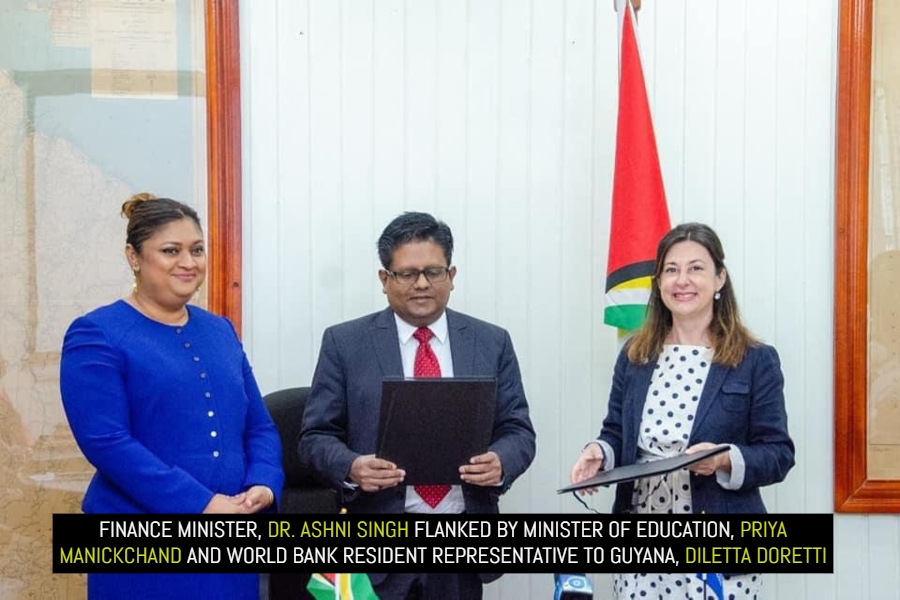Senior Finance Minister Dr. Ashni Singh today re-emphasized government’s commitment to ensuring every Guyanese is able to participate in the economic transformation the country is experiencing as he signed a US$44 Million Human Capital Development agreement with the World Bank.
That agreement will see Guyana strengthening its human resources through this major project under the education sector. Witnessing the signing and receiving the project for implementation was Minister of Education, Priya Manickchand while signing on behalf of the World Bank was World Bank Resident Representative to Guyana Diletta Doretti. The signing occurred at the Ministry of Finance in the presence of technical teams from both the Ministries of Finance and Education.
Despite the excitement surrounding all that is happening in the oil sector, Dr. Singh said there is no investment that is more important at this time than an investment in Guyanese to meet the skills and education needs of these sectors.
“The reality is that a very different workforce is going to be needed in the near future to meet the needs of this new economy,” Dr. Singh explained as he alluded to the fact that the immediate link of various developments in different sectors may not be seen immediately by persons in terms of the wholistic approach and objective by Government.
He said, “…if you think about it, there is a very explicit link between local content requirements in the oil and gas sector and the need to invest in ensuring the Guyanese people can take up the job opportunities that are going to be created and so this project is an important investment that fits into that broader agenda-investment in human capital.”
Guyana Standard understands that the objective of the project is to improve access and learning conditions in secondary education, as well as access to technical and vocational education and training aligned with identified labour market needs.
The proposed project would support the Government’s secondary education reform agenda and its objective of achieving universal secondary education.
It would also support different trajectories and modalities of obtaining an education by incorporating interventions addressing constraints related to access, quality, and relevance to help youth in Guyana reach their full potential and participate productively in the economy.













